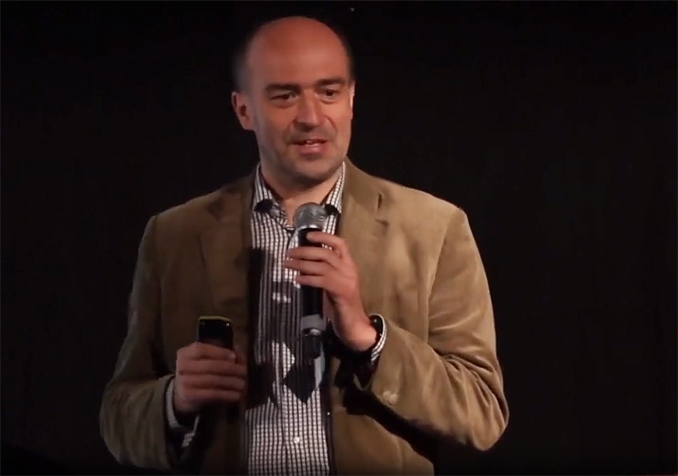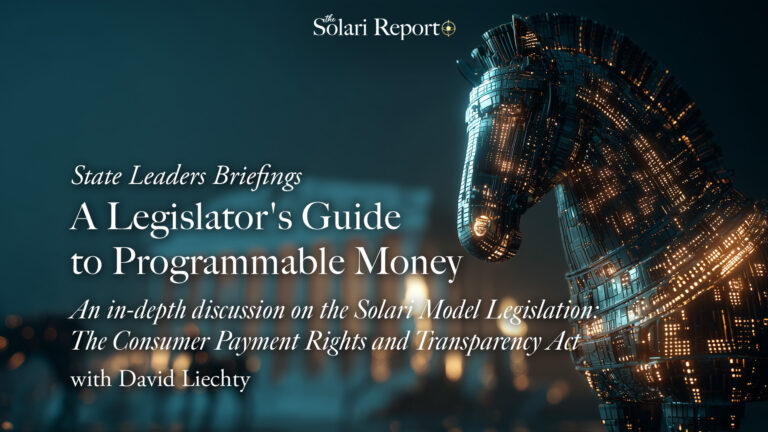
Blast from the Past: Week of April 17, 2023: Prof. Richard Werner – The Case for Abundance
Become a member: Subscribe
- Money & Markets
- Weekly Solari Reports
- Cognitive Liberty
- Young Builders
- Ask Catherine
- News Trends & Stories
- Equity Overview
- War For Bankocracy
- Digital Money, Digital Control
- State Leader Briefings
- Food
- Food for the Soul
- Future Science
- Health
- Metanoia
- Solutions
- Spiritual Science
- Wellness
- Building Weatlh
- Via Europa
Solari’s Building Wealth materials are organized to inspire and support your personal strategic and financial planning.

Missing Money
Articles and video discussions of the $21 Trillion dollars missing from the U.S. government
No posts
- LATEST
- TOP SECTIONS
- SERIES
- Money & Markets
- Weekly Solari Reports
- Ask Catherine
- News Trends & Stories
- Equity Overview
- Cognitive Liberty
- Young Builders
- Building Wealth
- The War for Bankocracy
- Digital Money, Digital Control
- State Leader Briefings
- Food
- Food for the Soul
- Future Science
- Health
- Metanoia
- Solutions
- Spiritual Science
- Wellness
- Via Europa
- BLOGS
- RESOURCES
- COMMUNITY
- My Account
- Log In
- Subscribe
- Search
- Shop
- Support
- Donate
- Log Out
Blast from the Past: Week of April 17, 2023: Prof. Richard Werner – The Case for Abundance

This week’s Blast from the Past highlights Prof. Richard Werner’s speech on “The Case for Abundance” and the economics of growth at the Scandinavian Freedom Event that took place in Malmö, Sweden in May 2022. This is an outstanding presentation by central bank expert Richard Werner on how it is banks that create money, and how CBDCs will change the game once they are introduced.
Make sure to also watch this short segment from the Q&A session after Richard’s presentation revealing the ominous nature of CBDCs:
Related:
May 13–15, 2022, A Scandinavian Freedom Event: Malmo – Sweden
One Comment
Comments are closed.
Our mission is to help you live a free and inspired life. This includes building wealth in ways that build real wealth in the wider economy. We believe that personal and family wealth is a critical ingredient of both individual freedom and community, health and well-being.
Nothing on The Solari Report should be taken as individual investment, legal, or medical advice. Anyone seeking investment, legal, medical, or other professional advice for his or her personal situation is advised to seek out a qualified advisor or advisors and provide as much information as possible to the advisor in order that such advisor can take into account all relevant circumstances, objectives, and risks before rendering an opinion as to the appropriate strategy.
Be the first to know about new articles, series and events.

One Comment
-
Is there really no problem with limits to earth’s resources? The story of civilization is essentially the story of “surplus energy”. That is, the amount of energy left over after a certain fraction of the total energy is spent in digging up and processing fossil fuels (which account for 80% of the energy we use).
There is a 98-99% correlation between GDP growth and energy growth. To the extent GDP growth is required for economic health, then, there must be growth in the amount of fossil fuels we extract and process for use.
Here’s the rub. The composition of that which we commonly measure as “oil production” has been changing over time (coal is expressed in “oil equivalent” terms). Oil has been getting harder and harder to extract as the wells become less accessible (think offshore and fracking), and harder to process as the quality degrades (think tar sands). Lower quality “oil” contains less energy. Also, some of what we list in the “oil” statistics is not actually used for fuel energy, it’s used to make plastic bags, etc.
In other words, it’s taking a larger and larger percentage of the energy we extract to do the extraction itself and the processing for use. This means the cost of extraction and processing is taking a larger and larger percentage of GDP.
It’s inevitable that there will come a point when our debt-driven economic system will no longer be able to support both debt servicing and the cost of energy. Therefore, we are faced with a limit to earth’s resources — a fossil fuel related limit. There will still be plenty of fossil fuels left in the ground, but they will eventually become too expensive to extract and process, possibly sooner rather than later.
Comments are closed.



















































































































Is there really no problem with limits to earth’s resources? The story of civilization is essentially the story of “surplus energy”. That is, the amount of energy left over after a certain fraction of the total energy is spent in digging up and processing fossil fuels (which account for 80% of the energy we use).
There is a 98-99% correlation between GDP growth and energy growth. To the extent GDP growth is required for economic health, then, there must be growth in the amount of fossil fuels we extract and process for use.
Here’s the rub. The composition of that which we commonly measure as “oil production” has been changing over time (coal is expressed in “oil equivalent” terms). Oil has been getting harder and harder to extract as the wells become less accessible (think offshore and fracking), and harder to process as the quality degrades (think tar sands). Lower quality “oil” contains less energy. Also, some of what we list in the “oil” statistics is not actually used for fuel energy, it’s used to make plastic bags, etc.
In other words, it’s taking a larger and larger percentage of the energy we extract to do the extraction itself and the processing for use. This means the cost of extraction and processing is taking a larger and larger percentage of GDP.
It’s inevitable that there will come a point when our debt-driven economic system will no longer be able to support both debt servicing and the cost of energy. Therefore, we are faced with a limit to earth’s resources — a fossil fuel related limit. There will still be plenty of fossil fuels left in the ground, but they will eventually become too expensive to extract and process, possibly sooner rather than later.